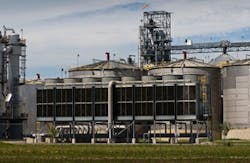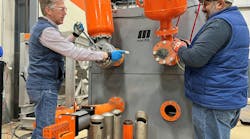U.S. refiners are concerned that if federal officials press ahead with their plans to introduce higher ethanol mandates under the renewable fuel standard (RFS), this could cause economic damage, the American Fuel & Petrochemical Manufacturers (AFPM) said in a statement.
The industry group announced that it filed a formal comment to the U.S. Environmental Protection Agency (EPA), arguing that the proposed ethanol consumption mandates for this year were "divorced from reality." Currently, the EPA's RFS for ethanol consumption is E-10, meaning that the fuel that reaches consumers is a blend containing 10 percent ethanol. The agency plans to introduce an E-15 standard, which would mandate the production of gasoline blends that contain 15 percent ethanol, as its own research found that E-15 could safely be used in passenger cars and light trucks manufactured between 2001 and 2006.
However, the AFPM and a group of car manufacturers and engine makers stated that the implementation of E-15 would cause damage to vehicles and to the U.S. fuelling infrastructure. Moreover, the new mandate would make it possible for consumers to launch claims against refiners and manufacturers for the damage done to their vehicles.
Refiners were also critical of the EPA's decision to mandate the United States' consumption of 14 million gallons of cellulosic ethanol in 2013, while estimates from the Energy Department stated that only 5 million gallons of cellulosic ethanol would be available this year. Despite this finding, refiners and blenders who fail to comply with the mandate will be fined by the EPA.
RELATED: New project to produce ethanol from sugar beets
According to AFPM president Charles Drevna, the EPA has refused to use the authority it has under the Energy Independence and Security Act 2007, which allows it to change ethanol mandate levels to suit market conditions. At present, the EPA still uses cellulosic ethanol mandates that are inconsistent with the realistic market conditions, Drevna added.
The AFPM has long claimed that the RFS is counterproductive and harmful to many parties, but so far no reaction to the problems it has created followed, Drevna continued. The United States needs a rational and unbiased approach to tackle the implications of the RFS implementation, rather than another subjective decision that would favor a certain party, very much in the same way this policy has been working ever since it was first presented, he concluded.
Meanwhile, the Renewable Fuels Association (RFA), a U.S. ethanol industry trade group, insisted in its comments that even if the EPA decided to adjust the cellulosic ethanol mandate, it should still remain in place, so that production growth and on-going investments are encouraged. The RFA also defended the use of E-15, stating that the EPA needs to keep its mandate for the fuel because the goals set by Congress in the Energy Independence and Security Act for biofuel consumption cannot be waived unless they constitute a severe economic threat to states or the country as a whole, or if there is a short supply of ethanol. The EPA is expected to announce its final decision on the matter later this year.



